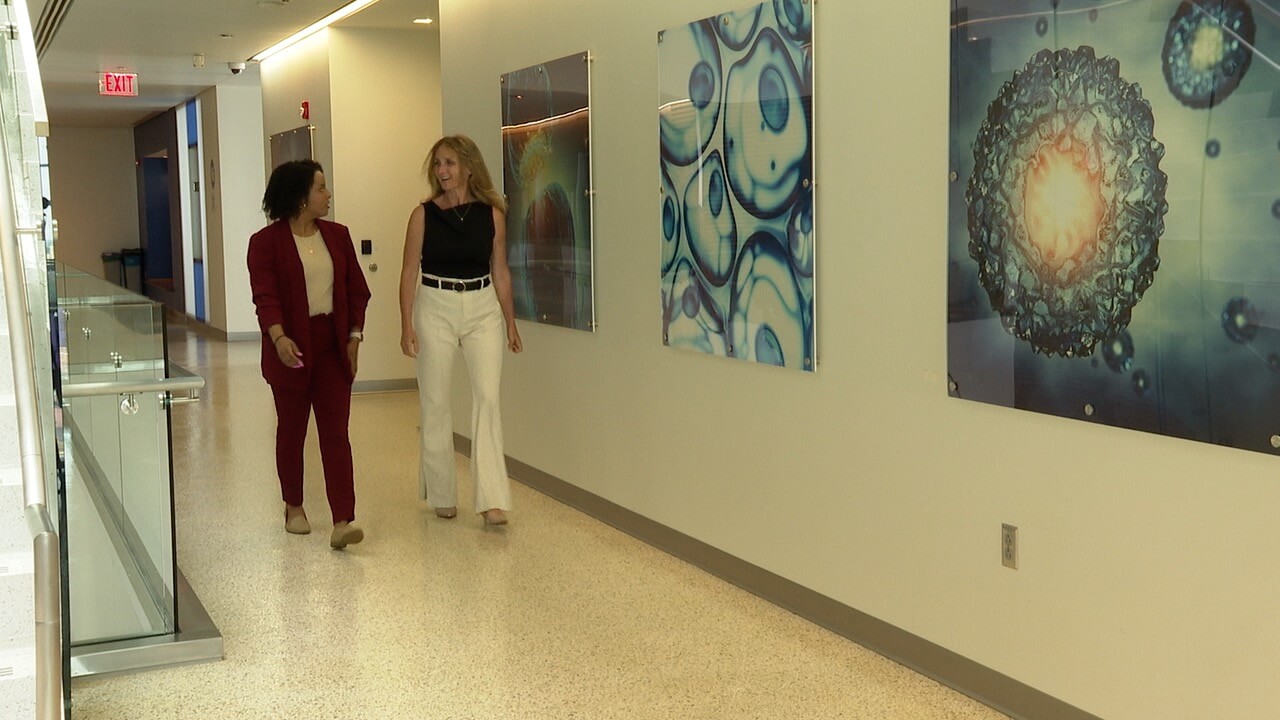AMHERST, N.Y. (WKBW) — The push to help people living with Alzheimer's disease is expanding.
It was two weeks ago that the FDA approved Leqembi as the first treatment for the degenerative disease.
Now there is a new player in the field.

7 News’ Pheben Kassahun spoke with a local specialist to find out how the new treatment works and the impact it could have on our community.
"My prognosis at that point was 18 months to five years,” David Gonlag said.
David Gonlag was diagnosed with Amnestic Mild Cognitive Impairment (MCI), in 2015.

It has been defined as an early or mild stage Alzheimer's disease.
Eight years later, his diagnosis defied the odds as his condition has only progressed much slower than doctors thought it would then leveled off after about four years.
"In my case, I had shrinkage in the frontal temporal lobes. It took about another year before you could get approval for pet scan and the pet scan was consistent with that diagnosis,” Gonlag explained.
Since his diagnosis, his memory began to decline forcing him to leave his day job as a corporate accountant.

He now serves on the board of early stage advisory for the Alzheimer's Association for the Western York Chapter.
Gonlag has a family history of Alzheimer's disease going back four generations.
He said education helped him understand it.
"The biggest thing for me was how to deal with it. I had grown up in kindergarten with my great grandmother. I was a young adult with my own little kids when my grandmother had it and we were caregivers for my aunt as adults and so I had sort of seen it from all sides,” Gonlag added.
Because he is considered in the early stage, he could possibly qualify for a new Alzheimer's drug called Lecanemab which is sold under the drug name Leqembi, which got FDA approval this month.
Another drug that made headlines this week called Donanemab is still in its clinical trials but is said to be promising.

Doctor Kinga Szigeti said, “This is not a straightforward medication that you just take a pill with almost no side effects. This is very involved. You have to have safety MRI scans to make sure that you are not getting too much swelling on the brain or bleeding. You have to come in for Lecanemab every two weeks for the infusion center. For Donanemab, once a month.”
Doctor Kinga Szigeti, MD, PhD is the founding director of the Alzheimer‘s Disease and Memory Disorders Center at the Jacobs School of Medicine at the University of Buffalo.
Doctor Szigeti, “This is very exciting because this type of drug has been studied now for about 15 to 20 years and there have been no breakthroughs. The disease is extremely complex.”

Doctor Szigeti said mild patients are considered for this drug, which include those who are still driving, living alone, getting along with their lives with minimal supervision but once they reach modern stage of dementia for those people this medication does not work.
Doctor Szigeti said, This is really a drug that is more preventative. It slows the disease progression in the very early stages when people are still really well. Both of these drugs were shown to be the most effective for people who do not have Alzheimer's yet. They do have the Alzheimer's pathology on the brain and they have some memory problems."
However, for people like Gonlag there's still a glimmer of hope.
"Everyday I can spend with my family is just a blessing. It's not to say that there aren't days where you still get depressed and all because that happens. That's part of that communication to let people know that's okay,” Gonlag said.






